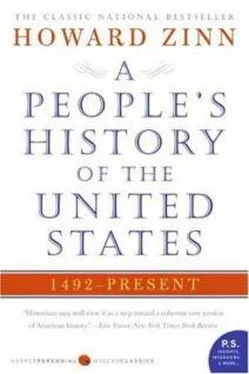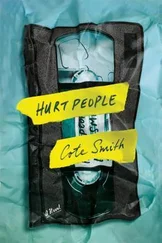Howard Zinn - A People
Здесь есть возможность читать онлайн «Howard Zinn - A People» весь текст электронной книги совершенно бесплатно (целиком полную версию без сокращений). В некоторых случаях можно слушать аудио, скачать через торрент в формате fb2 и присутствует краткое содержание. Издательство: Harper-Collins, Жанр: Фэнтези, на английском языке. Описание произведения, (предисловие) а так же отзывы посетителей доступны на портале библиотеки ЛибКат.
- Название:A People
- Автор:
- Издательство:Harper-Collins
- Жанр:
- Год:неизвестен
- ISBN:нет данных
- Рейтинг книги:4 / 5. Голосов: 1
-
Избранное:Добавить в избранное
- Отзывы:
-
Ваша оценка:
- 80
- 1
- 2
- 3
- 4
- 5
A People: краткое содержание, описание и аннотация
Предлагаем к чтению аннотацию, описание, краткое содержание или предисловие (зависит от того, что написал сам автор книги «A People»). Если вы не нашли необходимую информацию о книге — напишите в комментариях, мы постараемся отыскать её.
A People — читать онлайн бесплатно полную книгу (весь текст) целиком
Ниже представлен текст книги, разбитый по страницам. Система сохранения места последней прочитанной страницы, позволяет с удобством читать онлайн бесплатно книгу «A People», без необходимости каждый раз заново искать на чём Вы остановились. Поставьте закладку, и сможете в любой момент перейти на страницу, на которой закончили чтение.
Интервал:
Закладка:
The use of the phrase "all men are created equal" was probably not a deliberate attempt to make a statement about women. It was just that women were beyond consideration as worthy of inclusion. They were politically invisible. Though practical needs gave women a certain authority in the home, on the farm, or in occupations like midwifery, they were simply overlooked in any consideration of political rights, any notions of civic equality.
To say that the Declaration of Independence, even by its own language, was limited to life, liberty, and happiness for white males is not to denounce the makers and signers of the Declaration for holding the ideas expected of privileged males of the eighteenth century. Reformers and radicals, looking discontentedly at history, are often accused of expecting too much from a past political epoch-and sometimes they do. But the point of noting those outside the arc of human rights in the Declaration is not, centuries late and pointlessly, to lay impossible moral burdens on that time. It is to try to understand the way in which the Declaration functioned to mobilize certain groups of Americans, ignoring others. Surely, inspirational language to create a secure consensus is still used, in our time, to cover up serious conflicts of interest in that consensus, and to cover up, also, the omission of large parts of the human race.
The philosophy of the Declaration, that government is set up by the people to secure their life, liberty, and happiness, and is to be overthrown when it no longer does that, is often traced to the ideas of John Locke, in his Second Treatise on Government . That was published in England in 1689, when the English were rebelling against tyrannical kings and setting up parliamentary government. The Declaration, like Locke's Second Treatise , talked about government and political rights, but ignored the existing inequalities in property. And how could people truly have equal rights, with stark differences in wealth?
Locke himself was a wealthy man, with investments in the silk trade and slave trade, income from loans and mortgages. He invested heavily in the first issue of the stock of the Bank of England, just a few years after he had written his Second Treatise as the classic statement of liberal democracy. As adviser to the Carolinas, he had suggested a government of slaveowners run by wealthy land barons.
Locke's statement of people's government was in support of a revolution in England for the free development of mercantile capitalism at home and abroad. Locke himself regretted that the labor of poor children "is generally lost to the public till they are twelve or fourteen years old" and suggested that all children over three, of families on relief, should attend "working schools" so they would be "from infancy… inured to work."
The English revolutions of the seventeenth century brought representative government and opened up discussions of democracy. But, as the English historian Christopher Hill wrote in The Puritan Revolution: "The establishment of parliamentary supremacy, of the rule of law, no doubt mainly benefited the men of property." The kind of arbitrary taxation that threatened the security of property was overthrown, monopolies were ended to give more free reign to business, and sea power began to be used for an imperial policy abroad, including the conquest of Ireland. The Levellers and the Diggers, two political movements which wanted to carry equality into the economic sphere, were put down by the Revolution.
One can see the reality of Locke's nice phrases about representative government in the class divisions and conflicts in England that followed the Revolution that Locke supported. At the very time the American scene was becoming tense, in 1768, England was racked by riots and strikes-of coal heavers, saw mill workers, halters, weavers, sailors- because of the high price of bread and the miserable wages. The Annual Register reviewed the events of the spring and summer of 1768:
A general dissatisfaction unhappily prevailed among several of the lower orders of the people. This ill temper, which was pardy occasioned by the high price of provisions, and partly proceeded from other causes, too frequently manifested itself in acts of tumult and riot, which were productive of the most melancholy consequences.
"The people" who were, supposedly, at the heart of Locke's theory of people's sovereignty were defined by a British member of Parliament: "I don't mean the mob… I mean the middling people of England, the manufacturer, the yeoman, the merchant, the country gentleman…"
In America, too, the reality behind the words of the Declaration of Independence (issued in the same year as Adam Smith's capitalist manifesto, The Wealth of Nations ) was that a rising class of important people needed to enlist on their side enough Americans to defeat England, without disturbing too much the relations of wealth and power that had developed over 150 years of colonial history. Indeed, 69 percent of the signers of the Declaration of Independence had held colonial office under England.
When the Declaration of Independence was read, with all its flaming radical language, from the town hall balcony in Boston, it was read by Thomas Crafts, a member of the Loyal Nine group, conservatives who had opposed militant action against the British. Four days after the reading, the Boston Committee of Correspondence ordered the townsmen to show up on the Common for a military draft. The rich, it turned out, could avoid the draft by paying for substitutes; the poor had to serve' This led to rioting, and shouting: "Tyranny is Tyranny let it come from whom it may."
A Kind of Revolution
The American victory over the British army was made possible by the existence of an already- armed people. Just about every white male had a gun, and could shoot. The Revolutionary leadership distrusted the mobs of poor. But they knew the Revolution had no appeal to slaves and Indians. They would have to woo the armed white population.
This was not easy. Yes, mechanics and sailors, some others, were incensed against the British. But general enthusiasm for the war was not strong. While much of the white male population went into military service at one time or another during the war, only a small fraction stayed. John Shy, in his study of the Revolutionary army ( A People Numerous and Armed ), says they "grew weary of being bullied by local committees of safety, by corrupt deputy assistant commissaries of supply, and by bands of ragged strangers with guns in their hands calling themselves soldiers of the Revolution." Shy estimates that perhaps a fifth of the population was actively treasonous. John Adams had estimated a third opposed, a third in support, a third neutral.
Alexander Hamilton, an aide of George Washington and an up-and-coming member of the new elite, wrote from his headquarters: "… our countrymen have all the folly of the ass and all the passiveness of the sheep… They are determined not to be free… If we are saved, France and Spain must save us."
Slavery got in the way in the South. South Carolina, insecure since the slave uprising in Stono in 1739, could hardly fight against the British; her militia had to be used to keep slaves under control.
The men who first joined the colonial militia were generally "hallmarks of respectability or at least of full citizenship" in their communities, Shy says. Excluded from the militia were friendly Indians, free Negroes, white servants, and free white men who had no stable home. But desperation led to the recruiting of the less respectable whites. Massachusetts and Virginia provided for drafting «strollers» (vagrants) into the militia. In fact, the military became a place of promise for the poor, who might rise in rank, acquire some money, change their social status.
Читать дальшеИнтервал:
Закладка:
Похожие книги на «A People»
Представляем Вашему вниманию похожие книги на «A People» списком для выбора. Мы отобрали схожую по названию и смыслу литературу в надежде предоставить читателям больше вариантов отыскать новые, интересные, ещё непрочитанные произведения.
Обсуждение, отзывы о книге «A People» и просто собственные мнения читателей. Оставьте ваши комментарии, напишите, что Вы думаете о произведении, его смысле или главных героях. Укажите что конкретно понравилось, а что нет, и почему Вы так считаете.












